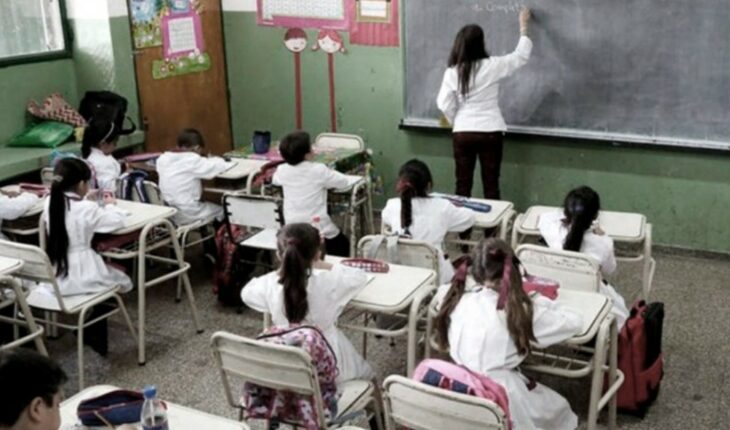The Buenos Aires government banned inclusive language in schools, through a resolution that recently reached schools and that begins to take effect today. The measure covers both public and private schools of CABA and the three compulsory levels – initial, primary and secondary – and those expressions that include the “e”, the “x” or the “@” are prohibited punctually. It is established that in the exercise of their functions, teachers must develop teaching activities and carry out institutional communications in accordance with the rules of the Spanish language, its grammatical standards and the official guidelines for its teaching, “details the ordinance. The resolution aims to eliminate inclusive language by considering it as “barriers” and “distortions” of language. Therefore, it prohibits inclusive language both in teaching by teachers, as well as in formal communications with families and in the posters that are in the establishment. Specifically, all expressions with the “e”, the “x” and the “@” are censored.” We know that language is mutating and we are not oblivious to that, but this type of distortion generates difficulty in learning the grammatical and basic rules of the language. It is something that we have been working with specialists and although there is no evidence because everything is still very new, we agree that it goes against learning. We have an obligation to teach the correct use of the language. Then the children are free people and can adapt it as they see fit,” said Soledad Acuña, Minister of Education of Buenos Aires. According to the head of the Buenos Aires Education portfolio, the frequent use of inclusive language in educational institutions “instead of reinforcing language acquisition, generates confusion.” Within the foundations of the resolution, they cite the Argentine Academy of Letters that recommends that “the teaching of the language be preserved at all educational levels if it is desired that students write with a certain fluency and correctness and, above all, understand what they read and write.” Prior to the CABA regulations, there is no precedent for provinces in Argentina that have censored inclusive language. At the global level, the closest case is that of Uruguay, which provided in schools that inclusive expressions always conform to the rules of the Spanish language. France, for its part, advised against the use of so-called inclusive writing as it “constitutes an obstacle to the reading and understanding of the written word.”
The Buenos Aires government banned inclusive language in schools
June 9, 2022 |





